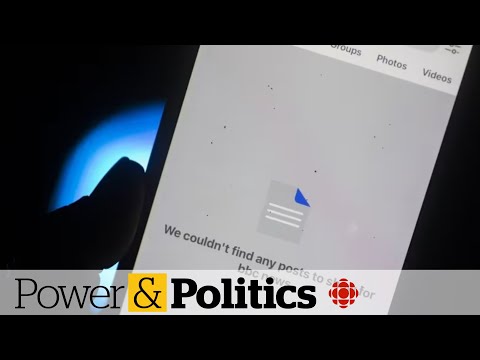TechDirt’s Mike Masnick gets it exactly right in covering Canada’s C-18 bill:
If you believe in the open web, if you believe that you should never have to pay to link to something, if you believe that no one should have to pay to provide you a benefit, then you should support Meta’s stance here. Yes, it’s self-serving for Meta. Of course it is. But, even if it’s by accident, or a side-effect, it’s helping to defend the open web, against a ridiculous attack from an astoundingly ignorant and foolish set of Canadian politicians.
And just generally points out the huge holes in Heritage Minister Pablo Rodriguez understanding from the Power & Politics Interview.



there is no nuance. Bill C-18 want you to pay to link to something. It’s a piece of legislation written by an industry that can’t figure out how it can work and instead want to be subsidized.
Facebook and Google have the power to stop linking to them. Because that linking IS driving trafic it WILL have an effect.
Two guys running a server will be next. Don’t you worry.
You’re right. Nuance isn’t even needed to see the problem here. Two corporations, mostly one when it comes to news, has cornered the web. For a huge chunk of the population, the web is Facebook or Instagram. For them the internet is Facebook. Linking inside Facebook doesn’t work like it does on the open web, in many ways. One of which is that Facebook wants to link content but not have users actually follow those links. And so there’s no point talking about linking as in the open web and any nuance around it. That’s why the law differentiates this:
The rest of the web like the two guys running a server, can be dealt with via the existing copyright law in Canada which is fairly permissive.
We are talking about a bit of different things.
For Meta, or other big company that have data centres, when you received a link you “share” they can basically crawl entire page (cause the visual pop ups that ask you to subscribe or please turn off ad blocker won’t work for bots.) They can have rotating instances so they are never under the 2 free articles per day limit. For lemmy as long as we don’t pre-cache contents, we should be fine as pure links are driving traffic. But on facebook you can expand and read like almost entire articles or click the “read more, source” something like that.
Now back to protect these media company. It is sort of important to have a government funded, NPO run neutral media.(cause we still have a lot of older people that only read news paper and watch TVs.) The rest actually didn’t matter that much. Everyone can have their own bias, but why normalize that bias through news media? Shouldn’t be news just stay as news that reports facts(5W 1H) and leave those “opinions” to whatever other blogs or entirely different non-government funded companies?
So, why should the government protects/helps news agencies that their primary goal is profit and selling their eye ball time and whatever owner’s political bias? Because it helps those that are currently in government?